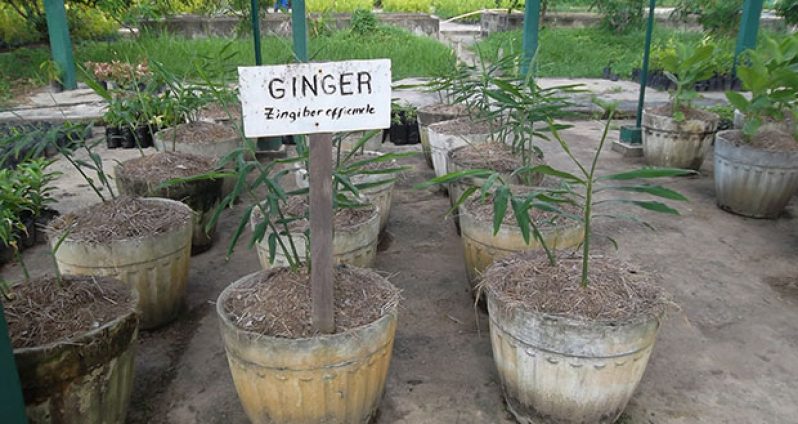We previously looked at three simple steps in establishing a home garden. Mulching is an important practice that home gardeners/ farmers can use to their benefits.
What is mulching?
Mulching is a simple and advantageous gardening practice used to enrich soils. It is used to retain soil moisture, protect plant roots from extremes in temperature, reduce weed growth, and protect the soil from erosion by wind and water.
Simply put, mulch is a layer of either organic or inorganic materials (at least 5 to 7cm thick) placed on top of the soil.

Organic materials that can be used for mulching include plant residues such as straw, leaves and dried grass; peat, wood in the form of sawdust, wood chips, wood bark and shavings; and animal manure.
Organic mulch should be placed around plants and trees, taking care not to let it touch the stem as this can cause rot. These are generally applied after the crop is well established. The decomposition of organic materials adds nutrients to the soil for plant uptake.
Plastic is the most common inorganic material used for mulching. If available, biodegradable materials are preferred. Plastic mulches should be applied before the crop is planted and removed at the end of the growing season. The plastic edges must be covered with soil to prevent the plastic from blowing away. Once the plastic has been laid, holes are then made where the seeds are to be planted in soil. This could also be done for transplants.
An added feature of using plastic mulch is that it could be combined with drip irrigation. If the systems are available, this could be combined with drip irrigation. If the systems are available this could also include the injection of fertilizer.
Advantages of Mulching
There are many advantages to be garnered from mulching:
Weed control: Mulches generally help to control weeds. However, some weeds and grasses usually grow through most organic mulches. Even with the use of clear plastic some amount of weed growth occurs due to light penetration. Nonetheless, black plastic prevents light penetration and as such is better for controlling weed growth.
Moisture Retention: Mulch greatly delays the loss of moisture from the soil. As a result, a more uniform soil moisture regime is maintained and irrigation frequency may be reduced. Irrigation is still needed for mulched crops so that the soil under the mulch does not dry out excessively. A combination of drip irrigation with mulching is therefore recommended.
Reduction of fertilizer leaching: Under mulching, there is a reduction in fertilizer losses due to leaching. Fertilizers are used more efficiently and the potential exists for reduced fertilizer inputs. However, this effect can be negated by over-watering or flooding.
Improving soil structure: The mulch acts as a barrier to the pounding action of rainfall. Thus, soil compaction and crusting are prevented. The soil therefore remains loose with good aeration for root growth and development.
Disease control: Mulches help to keep the fruit from coming into contact with the soil where diseases are located. For vine crops, the mulch serves as a protective barrier between the soil and fruit to reduce rot and keep the fruit cleaner. Mulches also reduce rain-splashed deposits of soil and disease organisms for other crops such as tomatoes and Boulanger.
Disadvantages of Mulching
There are some disadvantages of mulching which should be highlighted. There is the need for the purchase or construction of specialized equipment for laying the plastic and planting through the mulch. Further, the added expense of purchasing the mulch increases production costs and discourages its use. An additional disadvantage with the use of mulches is removal and disposal. Since most mulches are not degradable they must be removed from the field after the cropping season.




.png)









